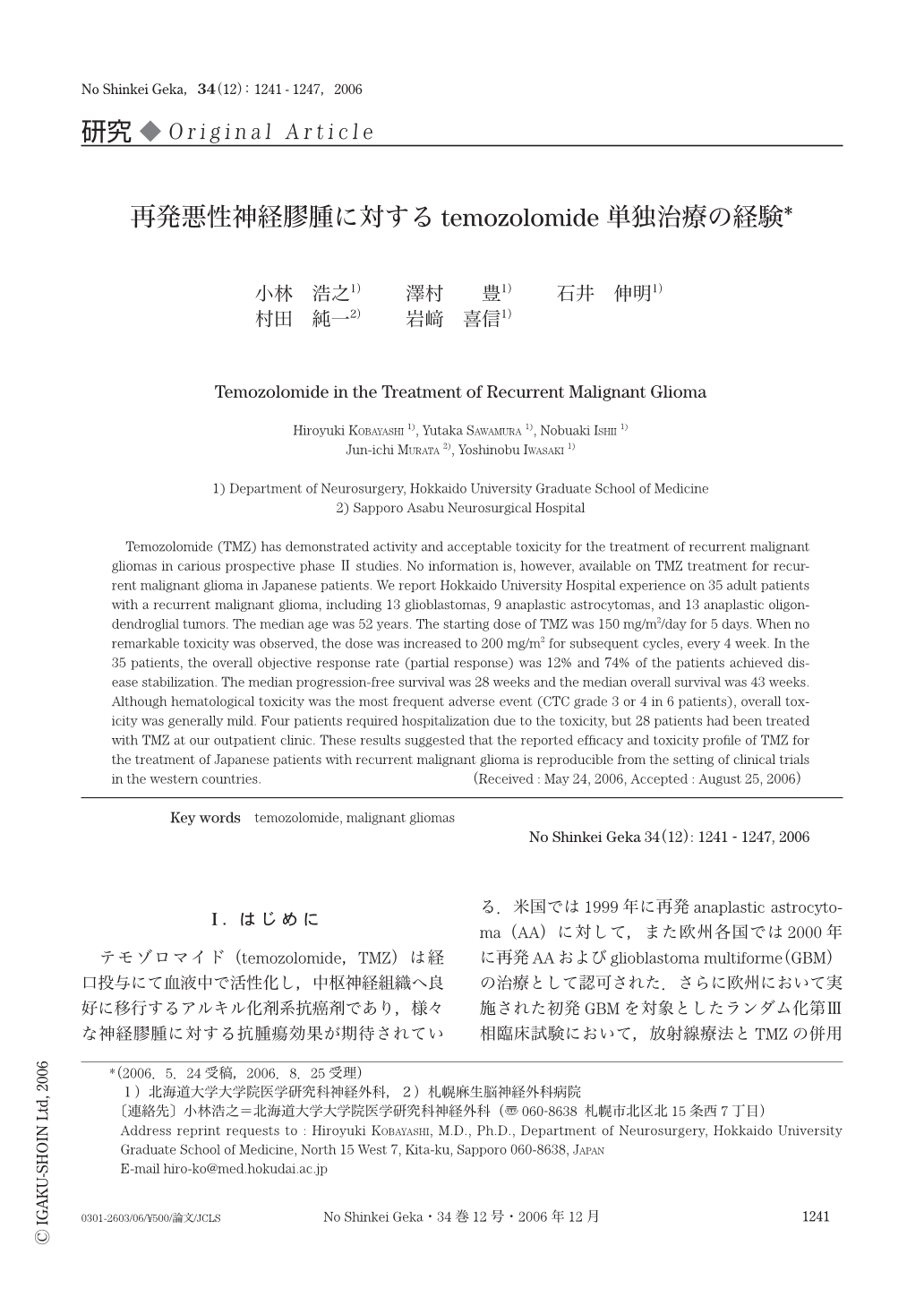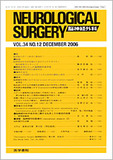Japanese
English
- 有料閲覧
- Abstract 文献概要
- 1ページ目 Look Inside
- 参考文献 Reference
Ⅰ.はじめに
テモゾロマイド(temozolomide,TMZ)は経口投与にて血液中で活性化し,中枢神経組織へ良好に移行するアルキル化剤系抗癌剤であり,様々な神経膠腫に対する抗腫瘍効果が期待されている.米国では1999年に再発anaplastic astrocytoma(AA)に対して,また欧州各国では2000年に再発AAおよびglioblastoma multiforme(GBM)の治療として認可された.さらに欧州において実施された初発GBMを対象としたランダム化第Ⅲ相臨床試験において,放射線療法とTMZの併用療法が放射線単独治療に比べ生存期間が有意に延長したと報告された8).
このような背景から欧米においては既に初発,再発を問わずTMZが悪性神経膠腫の標準的な第一選択薬として認知されるようになった.本邦においても2006年9月にTMZが認可となったが,日本人における効果,安全性に関する情報は非常に限られたものであり,また本邦からの治療経験の報告は少ない.そこでわれわれは,2003年から開始された北海道大学病院神経外科での再発悪性神経膠腫に対するTMZ単独治療の結果をまとめ検討した.
Temozolomide (TMZ) has demonstrated activity and acceptable toxicity for the treatment of recurrent malignant gliomas in carious prospective phaseⅡstudies. No information is,however,available on TMZ treatment for recurrent malignant glioma in Japanese patients. We report Hokkaido University Hospital experience on 35 adult patients with a recurrent malignant glioma,including 13 glioblastomas,9 anaplastic astrocytomas,and 13 anaplastic oligondendroglial tumors. The median age was 52 years. The starting dose of TMZ was 150 mg/m2/day for 5 days. When no remarkable toxicity was observed,the dose was increased to 200 mg/m2 for subsequent cycles,every 4 week. In the 35 patients,the overall objective response rate (partial response) was 12% and 74% of the patients achieved disease stabilization. The median progression-free survival was 28 weeks and the median overall survival was 43 weeks. Although hematological toxicity was the most frequent adverse event (CTC grade 3 or 4 in 6 patients),overall toxicity was generally mild. Four patients required hospitalization due to the toxicity,but 28 patients had been treated with TMZ at our outpatient clinic. These results suggested that the reported efficacy and toxicity profile of TMZ for the treatment of Japanese patients with recurrent malignant glioma is reproducible from the setting of clinical trials in the western countries.

Copyright © 2006, Igaku-Shoin Ltd. All rights reserved.


